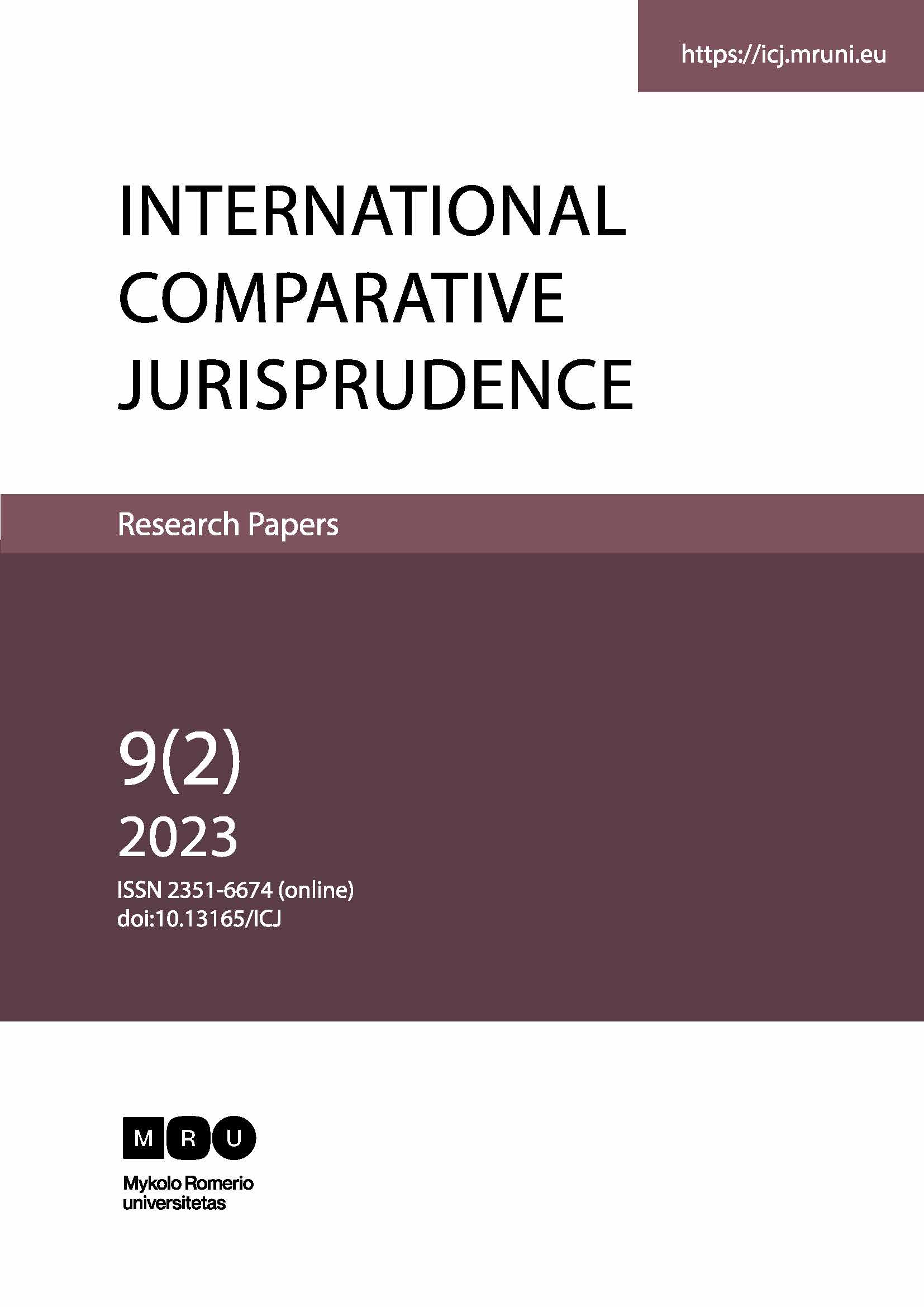FREEDOM OF CONSCIENCE IN A GLOBALISED WORLD – RESPECT FOR OR A THREAT TO RELIGIOUS BOOKS?
##plugins.themes.bootstrap3.article.main##
Abstract
The aim of this article is to examine the scope of freedom of conscience in the globalised world and whether it could be classified as a serious threat to peace and security or a safeguard for the sanctity of religious books. Freedom of conscience is a human right that is essential in the modern world as it allows individuals to hold and express their beliefs and values, regardless of their origin. However, the globalisation process has created challenges to the exercise of this right. Therefore, while freedom of conscience remains an essential human right in a globalised world, it is important that governments and civil societies take precautionary steps to ensure that this constitutional right is maintained and respected, and that individuals are able to exercise their conscience freely, without fear of discrimination or persecution. This may also include measures relating to the promotion of education and public dialogue on diversity and tolerance, the enactment of laws that protect freedom of religion, and holding accountable those who violate these rights.
##plugins.themes.bootstrap3.article.details##
Authors contributing to International Comparative Jurisprudence agree to publish their articles under a Creative Commons Attribution 4.0 International Public (CC BY) License.![]()







